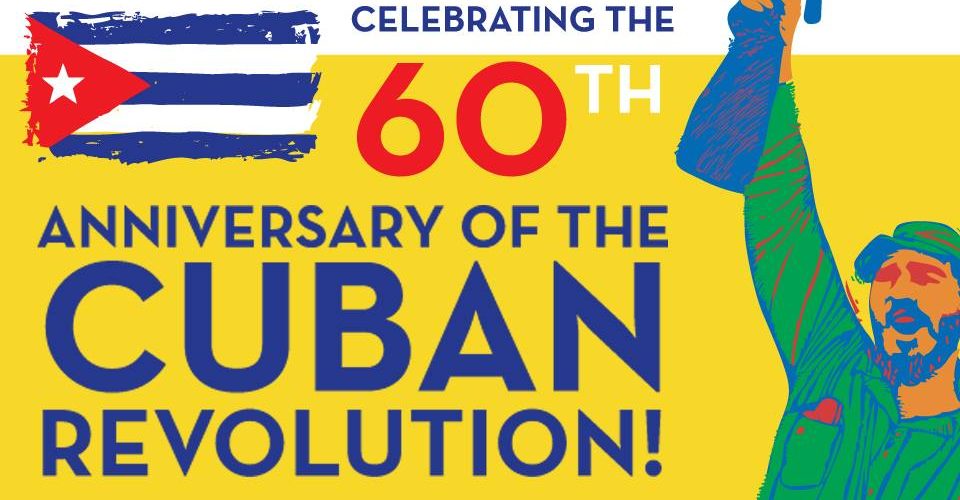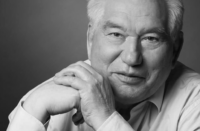This year is the sixtieth anniversary of the victory of the Cuban Revolution in 1959. Fidel Castro declared at the time: “Tyranny has been overthrown. The joy is immense. And yet, much remains to be done.”
Despite the decades-long blockade imposed on Cuba by the United States, and its long isolation by reactionary and fascist governments in Latin America, Cuba has developed, and the people’s living standards have changed beyond recognition, achieving social advances that Irish workers can only dream of.
The United States continues to impose its illegal blockade, extending across the world, affecting countries and companies that trade in any way with Cuba. This has resulted in bank accounts being frozen, and companies being fined or prevented from doing business with the United States.
It is estimated that this illegal blockade has cost Cuba in the region of $753 billion. It has also prevented the country importing medical supplies and equipment, new technology, and even parts for musical instruments. The list is endless.
Why does the United States, with a population of nearly 330 million people—a country bulging with nuclear weapons, with millions of soldiers under arms, the largest military budget by far of any country in the world, and military bases in dozens of countries—fear a small country like Cuba, with a population of about 11½ million people, smaller than that of the London metropolitan area?
This small country has not invaded or threatened any of its neighbours, has no military bases in any other country, has no naval capacity to engage in gunboat diplomacy, and has no nuclear weapons.
Cuba is not perfect, and has never claimed to be. It is a country struggling to overcome centuries of colonial plunder and imperialist domination. It is laying the basis for sustainable future economic security for its people.
So what is it that capitalist governments feel so threatened by? Here are some answers.
- Cuba pioneered sexual and reproductive rights, legalising abortion in 1965. Both abortion and contraceptives are free.
- Cuban parents receive generous maternity and parental leave.
- Both parents are entitled to forty weeks’ leave on 60 per cent of pay. Mothers receive full wages for four-and-a-half months.
- Cuba has the lowest infant mortality rate of any country in Latin America and of other poor countries around the world.
- Women make up the majority of judges, lawyers, scientists, technical workers, public health workers, and other professionals.
- 53 per cent of deputies in the Cuban National Assembly are women, the second-highest proportion in the world.
- Nine of the fifteen provincial assemblies are headed by women.
- 64 per cent of university places are occupied by women.
- Cuban women can expect to live on average to over eighty—a higher figure than the United States.
- A pregnant woman will receive a minimum of thirteen antenatal check-ups during her pregnancy. Those with high-risk pregnancies or with social problems receive extensive home care.
The Cuban Women’s Federation must be consulted on legislation and how it will affect women. Under the law, all government departments have a responsibility to ensure that their policies aid the advancement of women and do not undermine their position. They must also give an annual account of what they have done or are doing to achieve this.
The position of women in Cuba has changed beyond recognition, though more has to be done to finally create true equality between women and men and to end cultural machismo.
Cuba is a world leader in public health, far ahead of many of the countries that constantly berate Cuba for its supposed human-rights record. Medical care is in fact enshrined in the Cuban constitution—a far cry from the shambles of a health system that Irish workers have to endure.
- The doctor-patient ratio in Cuba is one doctor per 125 patients, much higher than the United States and Britain, and far ahead of Ireland.
- Family doctors and nurses work from a small local office, called a “consultario,” providing basic services.
- More serious areas, such as paediatrics, obstetrics, gynaecology, and dentistry, are dealt with at the local polyclinic, which serves between fourteen and thirty consultarios.
- All Cuban families receive a minimum of one home visit per year from their family doctor, who carries out routine tests such as blood pressure, heart, life-style etc. and gives advice on improvements that might be made.
- Families with high risk, such as existing health problems, smokers, and those with other addiction problems, are seen much more frequently.
- Patients wait on average one week to see a specialist.
- The primary care system ensures fast communication between family doctor, specialist, and patient. This community-based primary care is central to the success of the Cuban medical system.
- Before the Revolution, Cuba had only three medical colleges, which were exclusively for the rich; today there are twenty-three. Here they train not only Cubans but thousands of overseas medical students, free of charge.
This is a far cry from ward closures, patients lying on trolleys in hospital corridors, and long waiting-lists for seeing a consultant, a two-tier health system where, if you have money or private insurance, you jump the queue, leaving working people and the poor waiting for months.
In the field of education Cuba has an outstanding record. After the victory of the Revolution thousands of volunteers took part in a literacy campaign in working-class districts and in the countryside, teaching people to read and write. Today education is free at all levels.
- Parents are involved at all levels and are engaged and consulted on their child’s education.
- At the primary level, each school has a parent-teacher committee, to encourage the full participation of parents in their child’s schooling.
- Support is given to parents; they can even attend classes on pedagogy and psychology to help them understand their role in their children’s education.
- There are free pre-school centres for all under-fives. After-school clubs for all children are available, also free.
- There are special schemes for those parents who want to stay at home with their children.
- The Cuban education budget is 13 per cent of GDP, as against 5½ per cent for the United States and Britain.
The social advances made by the Cuban people over the last sixty years are impressive; and they do pose a grave threat to this decaying system of capitalism imposed upon us.
These impressive social advances are because of the very fact that the working class of Cuba have built a state, have state power. All wealth is produced by labour, by working people; and in Cuba they decide how that wealth is distributed, what are the social, economic and cultural priorities.
Contrast this with how our society is run, and who it is run for. It is run by the rich for the rich. All economic, social and political decisions in Ireland are made to protect those with money. No decision will ever be taken that might threaten that wealth and power.
Cuban democracy is different from ours. We are taught in school, and our curriculum informs us, that we live in a democracy—the only possible form of democracy—because we have multiple parties and we can elect the Government or replace the Government next time round.
In our lifetime (i.e. over a period of forty years) we might have the opportunity to vote perhaps ten to twenty times. But after we have cast our vote we have no means of changing or even influencing Government policy, other than by mobilising and demonstrating on the street.
Even then our victories hold for as long as we remain vigilant and organised. Nothing is ever guaranteed. The ruling elite and its governments will give us all the rights they think we need, but we will never get economic power.
We have multiple parties in the Dáil, but we have only one economic manifesto, that is, to protect the interests of the rich. In our place of work, where we spend most of our lives, we have no say or control; many of us are even denied the right to be represented by a trade union.
Cuban democracy is different. At present the Cuban people are discussing a new constitution, to be voted on in February this year. So far, more than 135,000 meetings have taken place in every community, work-place, school, and college. Amendments have been proposed, voted on, and submitted.
Every local, regional and national assembly, and all elected officials, are subject to recall, and are obliged to report on their activities to local meetings.
Working people in Cuba have economic and political power in their own hands. They have a state to ensure the equitable distribution of resources, and to build an infrastructure that the people need, not what big business wants or requires above that of the people. This is why they fear Cuba.
Cuba is a beacon of hope that there is an alternative to this decaying system called capitalism. It has shown real solidarity with oppressed peoples in their struggles for freedom and justice. The Cuban people have been selfless in sharing their own limited resources; they have shown real working-class solidarity and true friendship to many nations and peoples, and have asked nothing in return.
The world view of working people is and should be very different from that of the ruling elite. The elite take, steal, plunder, create havoc, bomb, kill and maim to get their hands on other people’s natural resources. They sow division and hatred, leaving poverty, destitution and hopelessness in their wake.
The US regime has branded Cuba, Venezuela and Nicaragua as threats to its national security and declared that they must be quarantined, marginalised, and isolated, preparing the ground for military intervention by domestic reactionaries, aided by the US military machine, to secure regime change and the restoration of the rule of the rich and powerful.
Cuba, on the other hand, has shown a different way forward, one of mutual support, sharing knowledge and resources, protecting nature, building the material base for future equality.
Cuba has travelled a long and arduous journey over the last sixty years. It has achieved a lot, yet solving one problem opens up new problems to be overcome, new challenges to be undertaken, new advances to be made, despite the brutal US blockade.
The Cuban Revolution shows the superiority of socialism over capitalism. It points the way forward for achieving national sovereignty and independence. You simply cannot separate social emancipation from the achievement of national freedom: they are inseparable.
As Raúl Castro, first secretary of the Communist Party of Cuba, put it so well on the occasion of the sixtieth anniversary, “we feel happy and confident when we see with our own eyes that the new generations continue building socialism, the only guarantee of national independence and sovereignty.
“The greatest lesson that revolutionaries and progressive movements can draw from the situation that has been forged is that of never forgetting unity with the people and never ceasing to support the most dispossessed.”






